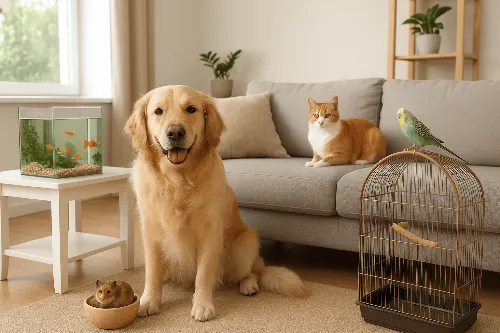
Needleheal Acupuncture: Ancient Wisdom with Modern Healing Power
Health
Moving Companies | Search ads

Emergency Generator | Search ads

Pet Training | Search ads
Our pets are more than companions — they’re family. And just like any family member, they deserve to be cared for properly. Cleanliness and overall health go hand in hand when it comes to pets, whether you share your home with a curious cat, an energetic dog, or something more exotic.
Keeping your pet clean doesn’t mean daily baths or constant grooming. It’s about consistent, thoughtful care that supports their physical well-being and emotional comfort. In this guide, you’ll find practical tips to help you maintain your pet’s hygiene and health year-round.
Grooming is about more than appearance — it directly affects your pet’s health. Matted fur, overgrown nails, or dirty ears can lead to infections or discomfort.
Bathing helps remove dirt, allergens, and odors, but over-washing can dry out your pet’s skin. Use species-specific shampoos that are free of harsh chemicals or artificial fragrances.
How often you bathe your pet depends on the type of animal, breed, coat length, and activity level. In general:
Dry thoroughly after baths, especially around ears and paws, to avoid moisture-related issues.
Nutrition is a cornerstone of good health. A high-quality, well-balanced diet tailored to your pet’s species, size, and age can prevent a wide range of health issues, from digestive problems to skin conditions.

Moving Companies | Search ads

Emergency Generator | Search ads

Pet Training | Search ads
Routine vet visits help catch potential issues early. Even if your pet seems perfectly healthy, regular checkups, vaccines, and parasite prevention are essential.
Your pet’s surroundings matter. Dirty bedding, toys, or litter areas can lead to infections or behavioral problems.
Creating a hygienic space supports your pet’s comfort and reduces the risk of illness for both them and your household.
Cleanliness is only part of the picture — active, happy pets are generally healthier too.
Taking care of a pet means more than love and companionship — it’s also about responsibility. With a proactive approach to grooming, hygiene, nutrition, and veterinary care, you can help your pet live a longer, healthier, and happier life.
Every pet is different, so pay attention to their unique needs and habits. A clean and healthy animal is not only a joy to be around but also a reflection of the care and attention they receive. And when they thrive, so does the bond you share with them.